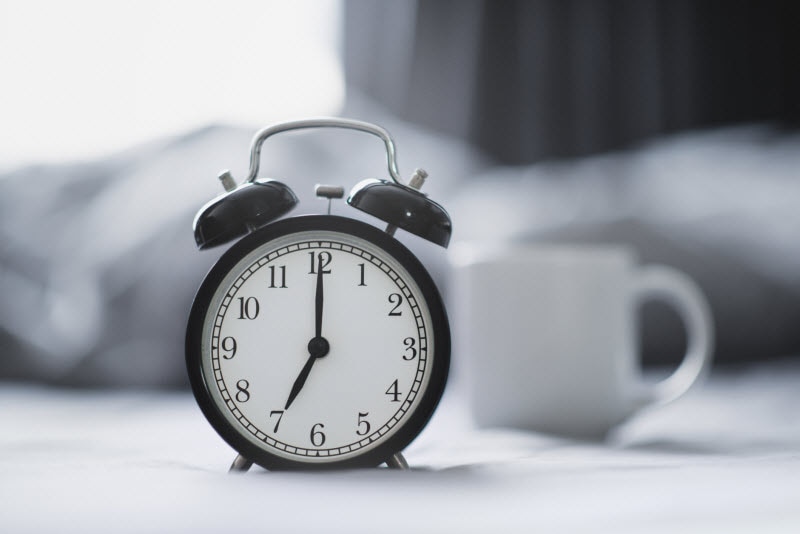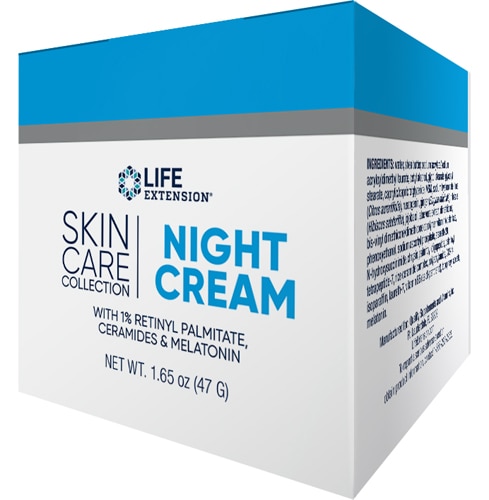[vc_row][vc_column][vc_column_text]Diet, exercise and stress management are well-known lifestyle factors contributing to our overall health.
Sleep, too, plays a major part. While most of us know how important it is to prioritize sleep (and that not doing so can have significant impacts on our well-being), there may be things about sleep we could better understand. One of these is circadian rhythm.

What is circadian rhythm?
Your
circadian rhythm is a collection of mental, behavioral and physical changes that operate on a 24-hour cycle. This 24-hour cycle can be further broken down into 2, 12-hour segments, with one representing daytime and the other representing nighttime. The circadian rhythm helps to make sure that all of the processes in your body are happening in the right place and at the right time during this 24-hour period. It affects most living things and is regulated by light and darkness.
The circadian rhythm is often referred to as the biological clock. Yet biological clocks are actually a component of the circadian rhythm and not the exact same thing. Your biological clock helps regulate the cycle of circadian rhythms. Nearly every
tissue and organ contain a biological clock.
How circadian rhythm affects health
The circadian rhythm controls the release of hormones and neurotransmitters that control many functions in your body. It also influences other parts of your body, such as your eating habits, digestion, body temperature and sleep habits. So, if your circadian rhythm is not optimal, many of your hormones and bodily processes won't be working optimally either.
Some ways that a disrupted circadian rhythm can impact your health include:
- Disrupted thyroid function. This can then impact metabolism, body temperature and more.
- May lead to the dysfunction of your hypothalamus adrenal pituitary (HPA) axis. This is your body’s main stress response system, and it is closely related to circadian rhythm. The dysfunction could lead to the improper handling of all types of stressors (physical, mental and emotional).
- Poor glucose metabolism and worsening insulin sensitivity. These can cause higher blood sugar levels.
- Increased hunger and less feelings of fullness. This can lead to overeating and unwanted weight gain.
- Increased inflammation. Inflammation can take a negative toll on many aspects of health and possibly contribute to many conditions such as cancer, asthma, arthritis, and Alzheimer’s disease.
- Disruption of the normal functioning of female reproductive hormones., This can interfere with ovulation and fertility.
- Increased mood disorders like anxiety and depression.
- Increased risk for a variety of chronic diseases.
What impacts your circadian rhythm?
Unfortunately, there are a lot of things in our modern society that can interfere with your circadian rhythm. Some of these are things that you have no control over, but many of them are things that you do. These things include:
Changes to normal light and dark cycle. This happens when we “trick” our bodies into thinking it’s daytime when it’s actually night, and vice versa. This especially affects people who work the night shift, frequently travel across time zones and spend most of their time indoors under artificial light are especially impacted by these changes. However, another huge contributor to this change is the frequent use of electronics that emit blue light after the sun goes down. Blue light
suppresses the release of melatonin, a hormone that helps you naturally fall asleep.
Altered sleep schedules. Like the changes in light and dark cycles, getting poor sleep or sleeping during odd times of the day disrupts circadian rhythm.
Exercise. Exercise is a
strong signal for circadian rhythms. However, exercise can positively or negatively impact sleep depending on the timing and how it’s incorporated.
Late evening exercise may block melatonin levels, which can alter sleep patterns and the circadian rhythm, while morning exercise can help support normal circadian rhythms.
Eating habits. When you eat matters almost as much as
what you eat when it comes to your health. Eating during a normal 12-hr day period supports circadian rhythm whereas late-night eating can disrupt it.
How to support a healthy and balanced circadian rhythm
Focusing on supporting your circadian rhythm can certainly benefit your sleep and overall health.
How to support your circadian rhythm can be broken down into two, 12-hour increments representing day and nighttime.
For your 12-hour daytime window (for example, 7 a.m. to 7 p.m.):
- Be consistent with when you wake up
- Aim for exposure to natural sunlight upon waking
- Eat a balanced breakfast including high fiber carbs, protein and healthy fats within 1-2 hours of waking
- Participate in forms of physical movement and exercises that you enjoy
- Limit the time you use blue light-emitting devices, and take breaks from them whenever possible
- Spend as much time outdoors as possible
For your 12-hour nighttime window:
- Be consistent with your bedtime
- Eat a balanced dinner at least 2-3 hours before bedtime. If hungry again before bedtime, have a small snack within an hour or so of going to bed
- Minimize blue light exposure and screens at least 1 hr before bed
- Sleep in a dark and cool room
In summary
Your circadian rhythm heavily influences many aspects of your health. There are many things that can interfere with your circadian rhythm, but implementing simple and small action steps during the day and at night can make a big impact in re-balancing your circadian rhythm and supporting your overall health.[/vc_column_text][/vc_column][/vc_row][vc_row][vc_column][vc_text_separator title="Featured Products" border_width="2"][vc_row_inner equal_height="yes" content_placement="middle" gap="35"][vc_column_inner width="1/3"][vc_single_image image="159291" img_size="full" alignment="center" onclick="custom_link" img_link_target="_blank" css=".vc_custom_1650037336525{padding-right: 7% !important;padding-left: 7% !important;}" link="https://www.vitacost.com/vitacost-synergy-sleep-support-with-melatonin-valerian"][/vc_column_inner][vc_column_inner width="1/3"][vc_single_image image="159290" img_size="full" alignment="center" onclick="custom_link" img_link_target="_blank" css=".vc_custom_1650037359407{padding-right: 7% !important;padding-left: 7% !important;}" link="https://www.vitacost.com/olly-extra-strength-sleep"][/vc_column_inner][vc_column_inner width="1/3"][vc_single_image image="159289" img_size="full" alignment="center" onclick="custom_link" img_link_target="_blank" css=".vc_custom_1650037382445{padding-right: 7% !important;padding-left: 7% !important;}" link="https://www.vitacost.com/natural-vitality-calm-sleep-supplement-drink"][/vc_column_inner][/vc_row_inner][/vc_column][/vc_row]




